This month we bring you news from Venezuela, Colombia, Brazil, Ecuador, Paraguay, Peru, Argentina and Chile. Amnesty has issued new reports on gender-based violence in Colombia and Ecuador and on institutional racism in Brazil. A transgender couple from Paraguay has been chosen for this year’s Write for Rights Campaign and we encourage you to write solidarity letters and to the Paraguayan authorities on their behalf.
VENEZUELA
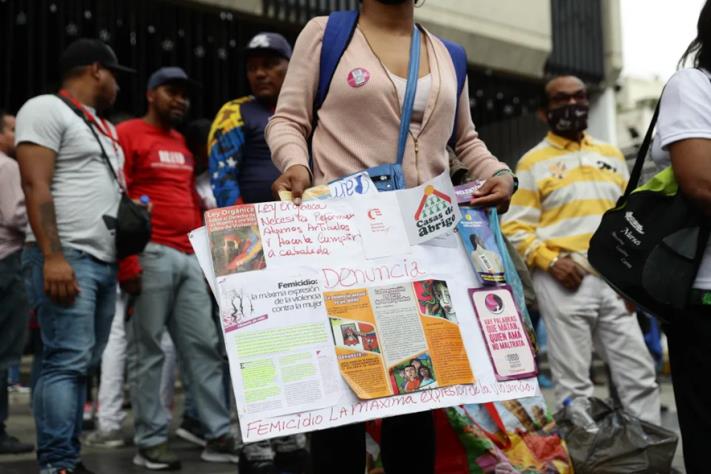 On November 25th, hundreds of women protested in the Venezuelan capital of Caracas to end violence against women, according to the Agencia EFE news agency. Marking the International Day for the Elimination of Violence against Women, feminist organizations in the country demanded state action, with non-governmental organization Provea stating that femicide has been made possible through “the abuses by, and the silence of, the state” (author’s translation). According to the register maintained by the non-governmental organisation Utopix, 193 women have been killed this year by men who form a part of their lives, meaning that a femicide has occurred every 37 hours.
On November 25th, hundreds of women protested in the Venezuelan capital of Caracas to end violence against women, according to the Agencia EFE news agency. Marking the International Day for the Elimination of Violence against Women, feminist organizations in the country demanded state action, with non-governmental organization Provea stating that femicide has been made possible through “the abuses by, and the silence of, the state” (author’s translation). According to the register maintained by the non-governmental organisation Utopix, 193 women have been killed this year by men who form a part of their lives, meaning that a femicide has occurred every 37 hours.
In addition, protesters have also marched for the decriminalization of abortion. The current Penal Code prohibits abortion in all cases except where it is an indispensable measure to save the life of the mother, otherwise, it is punishable by between six months and two years in prison.
On November 1st, the International Criminal Court Chief Prosecutor Karim Khan formally asked the Court to continue its investigation into alleged human rights violations committed in Venezuela. In 2020, Khan’s office found, in a preliminary investigation, that there was a “reasonable basis” to believe that “since at least April 2017, civilian authorities, members of the armed forces, and pro-government individuals have committed crimes against humanity”. The ICC has yet to make its decision on Khan’s request.
Researchers writing in the Lancet have found that mining activity in southern Venezuela is associated with hotspots in malaria transmission. The study noted that increased temperatures exacerbated malaria transmission in mining areas, with parts of Venezuela likely to be subject to rapidly rising temperatures because of climate change. Much of Venezuela is subject to illegal mining, especially in the Bolívar state, where Human Rights Watch and the United Nations have found residents, including indigenous groups, suffer violence and sexual abuses at the hands of armed groups. Meanwhile, inhabitants of the town of Tumeremo have denounced the government efforts to dismantle illegal mining operations, citing the alleged arbitrary detention of individuals. Tumeremo has historically been the scene of violence due to government crack downs on illegal mining.
Talks between Venezuela President Nicolás Maduro and the country’s opposition parties, grouped under the Plataforma Unitaria, will resume, according to the Norwegian government, which will act as a mediator. Talks had already occurred over a potential political settlement between Maduro and the opposition in September 2021, but they broke down after Alex Saab, a key ally of Maduro and a Colombian businessman with business interests in Venezuela, was extradited to the United States on money-laundering charges. The Director of the non-governmental organization Justicia Venezolana, Lilia Camejo, has demanded that Maduro and the Plataforma Unitaria make political imprisonment part of the negotiations, with Justicia Venezolana stating that 320 individuals are currently imprisoned for political reasons.
COLOMBIA
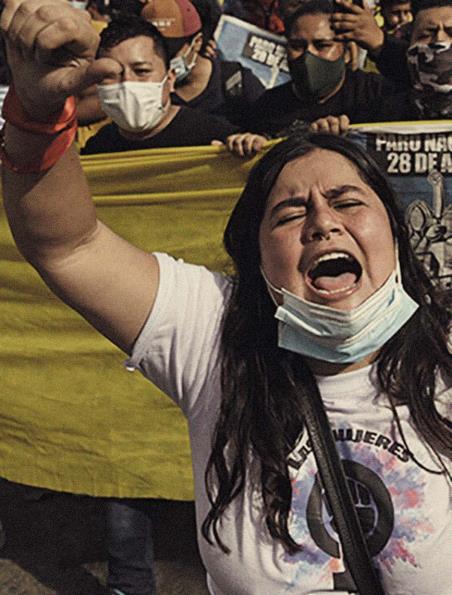 Amnesty International has released a new report The police do not protect me: Sexual violence and other gender-based violence during the 2021 National Strike. It documents 28 cases of gender-based violence that took place in seven cities against women and LGBTIQ+ people in the context of the protests. The report details an array of violent behaviour by state agents, particularly National Police officers, ranging from the use of sexist, misogynist and abusive language to sexual violence, which can constitute a form of torture.
Amnesty International has released a new report The police do not protect me: Sexual violence and other gender-based violence during the 2021 National Strike. It documents 28 cases of gender-based violence that took place in seven cities against women and LGBTIQ+ people in the context of the protests. The report details an array of violent behaviour by state agents, particularly National Police officers, ranging from the use of sexist, misogynist and abusive language to sexual violence, which can constitute a form of torture.
The Colombian NGO Programa Somos Defensores (We are Defenders Programme) reports that in the July to September 2022 quarter, 46 human rights defenders and social leaders were killed, compared to 28 in the same period for 2021. In the 9 months to September 2022, the number of killings exceeded the total for the whole of 2021. It is increasingly hard to identify the perpetrators as they go to some lengths to avoid identification. However, when it comes to aggressions, former paramilitaries and FARC dissidents are the prime perpetrators.
Gustavo Petro was sworn into office 8 August as President and one of his first actions was to launch an emergency plan to counter the violence in rural Colombia. This includes the creation of Unified Command Posts for Life (PMUV) in 69 of the worse affected municipalities to verify protection measures, identify what measures are required in each territory and to strengthen the institutional and civil bodies in the event of an emergency. The plan was designed by local and international NGOs, members of Petro’s Historic Pact party and the UN’s Office for Human Rights in Colombia.
The Internal Displacement Monitoring Centre reports that at least 137 members of an Afro-Colombian community in the department of Chocó were forcibly displaced 11 November following an incursion by an Armed Opposition Group. This region is being fought over by organised crime (Clan del Golfo) and the ELN (National Liberation Army).
BRAZIL
Outgoing President Bolsonaro’s party failed in its attempt to have a large number of electronic voting machines invalidated, arguing that these were unreliable and thereby called into question the results of the election. The head of the Electoral Court rejected the claim and fined Bolsonaro’s coalition parties $4.3 million for bad faith litigation.
Amnesty has denounced the killings of 20 people and the wounding of 40 more in Rio de Janeiro’s favelas by police in the week of 25 November. Between January and October 2022, 1,111 people were victims of police killings, which represent 30% of all homicides in Rio state.
Amnesty International has submitted a review of Brazil under the International Convention on the
Elimination of All Forms of Racial Discrimination. It focuses on Brazil’s failure to address
racial and structural discrimination and social rights of the Afro-Descendant and Indigenous populations. Brazilian institutions have been ineffective in pursuing their legal obligations to counter racial discrimination. Discrimination is found in the criminal justice system and the unlawful killings, extrajudicial executions, and the excessive use of force by law enforcement officials and in women’s rights.
The report also reviews police impunity. On the over 6,000 people killed by police in 2021, 84% of them Black, Amnesty found that ‘the Public Prosecutor’s office has been tacitly supporting abuses by failing to effectively investigate killings resulting from police intervention. Criminal investigation rarely is carried out and when it does it is often flawed and slow, leading to impunity for police officers involved in unlawful killings.’
Amnesty has also published a new report on Brazil’s response to the pandemic. Despite disposing of greater resources per capita than other countries in the region, the country had the most deaths per capita in the Americas after Peru and the nineteenth globally. Black and Indigenous Brazilians suffered most with a death rate 45% higher than for Whites. In May 2020, Amnesty identified seven recommendations, including better information, social outreach, non-discrimination and to take into account people living on the street.
Lawyers press the International Court to investigate a ‘Network’ committing crimes against humanity in Brazil’s Amazon. The lawyers’ action cites land- and water-related conflicts that involved an alleged 400 murders, 500 attempted murders, 2,200 death threats, 2,000 assaults, 80 instances of torture and 100,000 crimes against property like the razing of homes from 2011 to 2022 in Brazil’s portion of the Amazon.
ECUADOR
In a new report, Unprotected in Ecuador: Venezuelan refugee women survivors of gender-based violence, Amnesty has revealed how Venezuelan women in Ecuador face ever-present violence and a state incapable of guaranteeing, protecting and respecting their right to a life free from violence. Following similar findings in Colombia and Peru, Amnesty said that this indicated an alarming regional trend that must be urgently reversed. Ecuador has taken in the third largest number of people fleeing the massive human rights violations in Venezuela.
In December, we shall be discussing the report with the Ecuadorian Embassy and the Foreign, Commonwealth and Development Office.
PARAGUAY
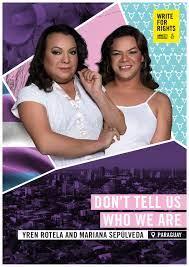 This year’s Write for Rights Campaign features YrenRotela and Mariana Sepulveda, two Paraguayan trans women, who face discrimination, including bullying, physical attacks and other obstacles to speaking out about their situation. Yren and Mariana are activists demanding a change in attitudes to trans people in Paraguay and legal recognition of their identity so they can exercise their rights.
This year’s Write for Rights Campaign features YrenRotela and Mariana Sepulveda, two Paraguayan trans women, who face discrimination, including bullying, physical attacks and other obstacles to speaking out about their situation. Yren and Mariana are activists demanding a change in attitudes to trans people in Paraguay and legal recognition of their identity so they can exercise their rights.
Please write to the Paraguayan authorities and send solidarity messages to Yren and Mariana. In January, we shall invite Local Groups to consider taking on Yren and Mariana’s case on a longer-term basis.
PERU
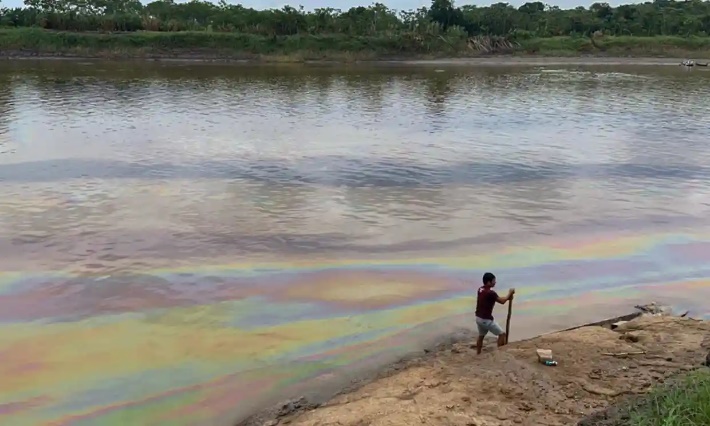 Native leaders from the Peruvian Amazon travelled to the US in November to lobby banks to cut financial ties with Peru’s state oil company, Petroperú. Leaders from the Achuar and Wampis peoples say the state company is responsible for oil spills in their territory that violate their human rights by polluting their water sources and irreparably damaging their fishing and hunting grounds.They are also demanding the Peruvian government and banks stop oil exploration and investment in all Indigenous territories in the Peruvian Amazon, the second largest part of the rainforest after Brazil.
Native leaders from the Peruvian Amazon travelled to the US in November to lobby banks to cut financial ties with Peru’s state oil company, Petroperú. Leaders from the Achuar and Wampis peoples say the state company is responsible for oil spills in their territory that violate their human rights by polluting their water sources and irreparably damaging their fishing and hunting grounds.They are also demanding the Peruvian government and banks stop oil exploration and investment in all Indigenous territories in the Peruvian Amazon, the second largest part of the rainforest after Brazil.
ARGENTINA
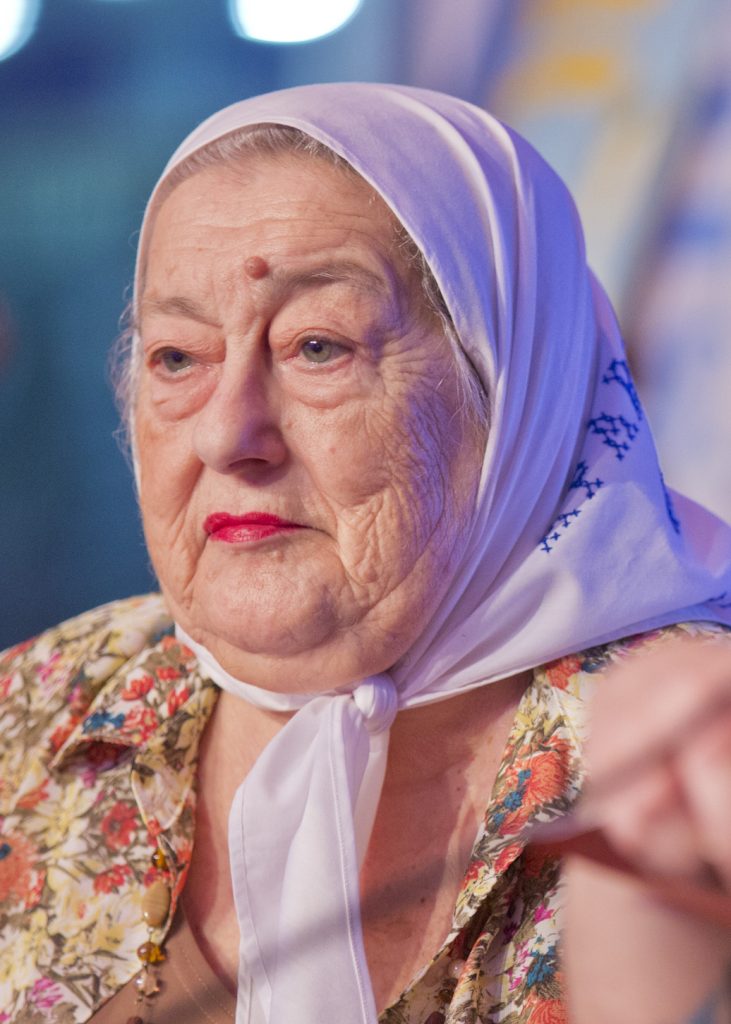 Hebe de Bonafini, president and co-founder of the Mothers of the Plaza de Mayo, has died at the age of 93. The Mothers of the Plaza de Mayo is an organization of Argentine mothers whose sons disappeared during the military dictatorship from 1976 to 1983. Hebe de Bonafini lost two sons. The Mothers began demonstrating in the Plaza de Mayo, the public square located in front of the presidential palace in Buenos Aires. Initially petitioning for the reappearance of their children, and then to get justice for their murders. They wore white headscarves, embroidered with the names and dates of birth of their offspring,
Hebe de Bonafini, president and co-founder of the Mothers of the Plaza de Mayo, has died at the age of 93. The Mothers of the Plaza de Mayo is an organization of Argentine mothers whose sons disappeared during the military dictatorship from 1976 to 1983. Hebe de Bonafini lost two sons. The Mothers began demonstrating in the Plaza de Mayo, the public square located in front of the presidential palace in Buenos Aires. Initially petitioning for the reappearance of their children, and then to get justice for their murders. They wore white headscarves, embroidered with the names and dates of birth of their offspring,
The Mothers of the Plaza de Mayo are featured in the new documentary “Argentina, 1985”, released on Amazon Prime. It focuses on the “Trial of the Juntas”, when the military commanders in power during the country’s dictatorship were prosecuted and sentenced for their role in the torture, murder and disappearance of thousands of people.
CHILE
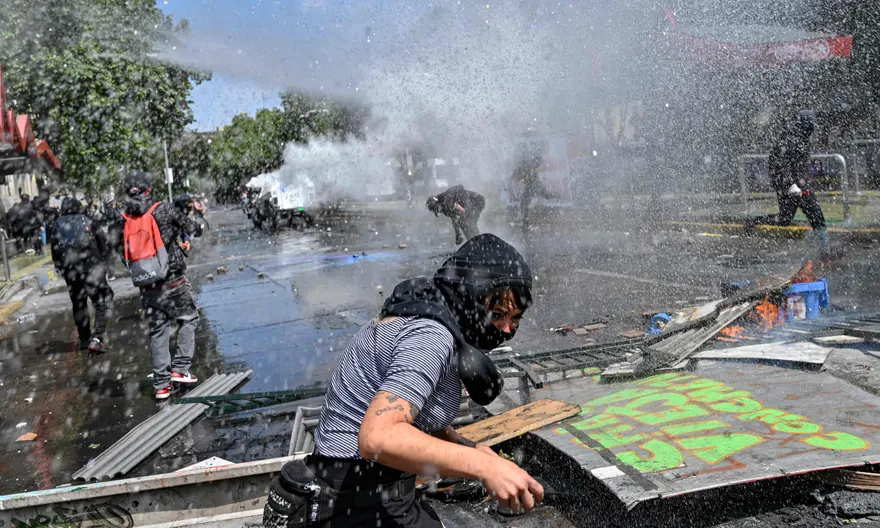
Since Chile’s progressive movement was deflated by the crushing defeat of a proposed new constitution in September, high school students have taken to the streets to rekindle their demands. The weeks since the 4 September plebiscite in which 62% of voters rejected the document have been punctuated by student marches, arson attacks and metro platform protests. Chile’s politicians have been unable to reach any meaningful consensus on a new constitutional process, and the grinding negotiations have frustrated those who had hoped for more dramatic change
According to statistics compiled by Chile’s education ministry, non-attendance across the entire education system has been 98% higher in 2022 than in 2019. Sofía Donoso, at the University of Chile, said: “These protests are different to typical student demonstrations – they’re far more visceral and anarchic. The current trend among the demonstrators is against political parties, which makes it hard to channel, but these student movements have shaped Chilean politics in recent years.”
OUR TEAM AND YOU
This month we welcome David Rogers (CC for Argentina and Chile) and James Baird (CC for Venezuela) to the South America Team
All the best,
South America Team – Richard Crosfield (Colombia and Brazil), David Rogers (Argentina and Chile), James Baird (Venezuela) and Graham Minter (rest of South America). And please don’t forget that you can follow us on our Facebook page and Twitter.